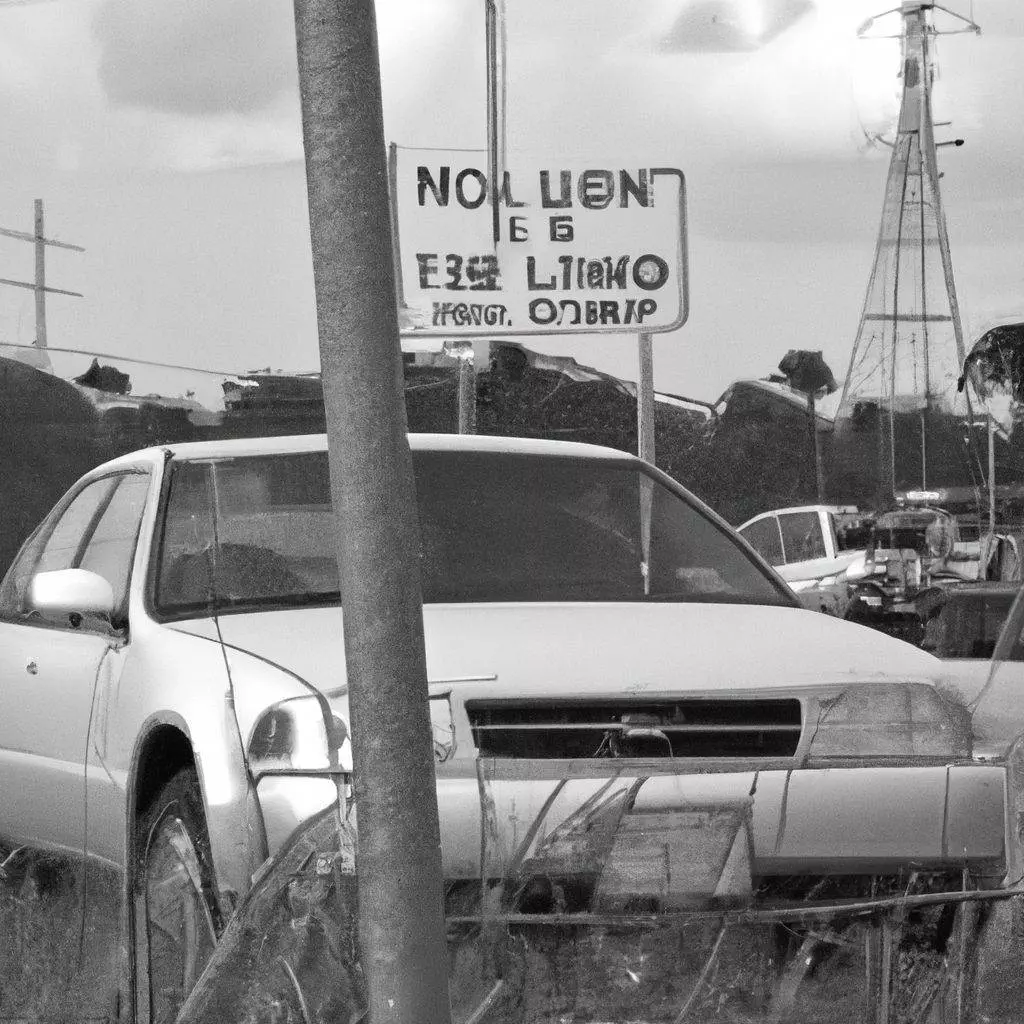In Florida, it is essential to be aware of the regulations surrounding the duration a tow company is allowed to retain possession of your vehicle. Understanding these rules can save you from unnecessary stress and potential legal issues. This article aims to shed light on the maximum time limit a tow company can keep your car in Florida, ensuring you are equipped with the knowledge to protect your vehicle and make informed decisions in challenging situations.
General Information
Definition of a tow company
A tow company, also known as a towing service or a wrecker service, is a professional business that specializes in transporting vehicles from one location to another. It provides towing services in various situations, including breakdowns, accidents, and illegal parking. Tow companies have the equipment and expertise to safely secure and transport vehicles of all sizes, ranging from motorcycles to large trucks.
Overview of tow company regulations in Florida
In Florida, tow companies are subject to specific regulations to ensure consumer protection and fair treatment. These regulations are defined by the Florida Statutes and enforced by the Florida Department of Transportation’s Division of Motorist Services. The laws governing tow companies aim to establish guidelines for towing procedures, fees, storage, and customer rights.
Towing Procedures
Authorization for towing
Before a tow company can tow your vehicle, it must have proper authorization. The authorization can come from either the owner or operator of the vehicle, law enforcement agencies, or property owners/managers. In the case of privately-owned properties, the tow company must have a written agreement with the property owner or manager, specifying the conditions and criteria for towing vehicles from the premises.
Notification requirements
Once a vehicle is towed, the tow company is required to provide notification to the appropriate parties. This includes notifying law enforcement agencies within 30 minutes of the tow and informing the vehicle owner, if known, within three hours of the tow. The tow company must also place a notice at the location where the vehicle was parked, indicating the name and contact information of the tow company, along with instructions on how to recover the vehicle.
Towing fees and charges
The fees and charges associated with towing services in Florida are regulated to prevent excessive costs. Tow companies can charge various fees, including a towing fee, storage fee, and administrative fee. The maximum rates for these fees are set by the Florida Statutes. It is important for vehicle owners to be aware of these fees and request an itemized invoice from the tow company to ensure transparency and accuracy.

Initial Storage Period
Access to retrieve your vehicle
During the initial storage period, which typically lasts for the first 24 hours after the vehicle is towed, the vehicle owner or operator has the right to access and retrieve their vehicle. However, the tow company may require certain documentation or evidence of ownership before releasing the vehicle. It is advisable for vehicle owners to have their identification, proof of ownership, and any necessary documentation readily available when reclaiming their vehicle.
Storage fees during the initial period
Tow companies are allowed to charge storage fees for the period during which the vehicle is stored on their premises. However, there are specific regulations governing these fees in Florida. The maximum allowable storage fee for the initial 24-hour period is set by the Florida Statutes. It is important for vehicle owners to understand the storage fee structure and to promptly retrieve their vehicles to avoid additional charges.
Public vs. Private Property
Different rules for towing on public and private property
Towing on public property and towing on private property are governed by separate sets of rules and regulations in Florida. Public property refers to areas such as roads, highways, and government-owned parking lots, while private property includes commercial establishments, residential complexes, and private parking lots.
Conditions for towing on public property
On public property, law enforcement agencies have the authority to authorize the removal of vehicles. Some common reasons for towing on public property include vehicles parked in prohibited zones, blocking traffic, or posing a safety hazard. Tow companies that tow vehicles on public property are typically contracted or authorized by government agencies.
Conditions for towing on private property
On private property, such as commercial establishments or residential complexes, the property owner or manager has the authority to request or contract tow companies for vehicle removal. Towing on private property is often done to enforce parking regulations, ensure proper use of limited parking spaces, or address unauthorized parking. Prior written agreements between the property owner or manager and the tow company are required to authorize towing on private property.

Abandoned Vehicles
Definition of an abandoned vehicle
An abandoned vehicle is a vehicle that has been left unattended for a certain period, often determined by state laws or local ordinances. In Florida, an abandoned vehicle is defined as a motor vehicle (including trailers and semitrailers) that is left on public or private property without permission from the owner or occupant for more than 48 hours.
Towing regulations for abandoned vehicles
When a vehicle is deemed abandoned, tow companies may initiate the process of removing and impounding the vehicle. The regulations regarding the towing of abandoned vehicles in Florida provide guidelines on when and how an abandoned vehicle can be towed. Tow companies must follow specific notification requirements, including providing notice to law enforcement, contacting the last registered owner, and posting a notice on the vehicle.
Requirements for notification and storage
To ensure fairness and proper procedure, Florida’s regulations require tow companies to make reasonable efforts to notify the vehicle owner prior to towing. This includes contacting the last registered owner of the vehicle, if known, and sending a certified letter to their address. If the vehicle remains unclaimed, the tow company may proceed with impoundment and storage. The regulations also define the maximum allowable storage fees and the minimum required holding period for abandoned vehicles.
Consent Towing
Explanation of consent towing
Consent towing refers to the towing of vehicles with the owner’s consent. This typically occurs when the vehicle owner voluntarily requests a tow company’s services, such as when their vehicle breaks down or they need a transport service for their vehicle. Consent towing provides an alternative to impoundment or involuntary towing and is typically arranged directly between the vehicle owner and the tow company.
Agreements between property owners and tow companies
In some cases, property owners or managers may have agreements with tow companies to provide consent towing services on their premises. These agreements outline the terms, conditions, and fees associated with the provision of tow services on the property. Consent towing agreements may include provisions regarding parking regulations, authorized parking areas, and the enforcement of parking restrictions.
Impounded Vehicles
Reasons for vehicle impoundment
Vehicle impoundment occurs when a vehicle is seized and taken into custody by law enforcement or a authorized tow company. There are several reasons for vehicle impoundment in Florida, including but not limited to, illegal parking, outstanding traffic violations, involvement in criminal activities, or lack of proper registration or insurance. The impoundment of a vehicle is typically carried out to enforce the law or protect public safety.
Process for releasing an impounded vehicle
To reclaim an impounded vehicle, the vehicle owner must follow a specific process outlined by the law. This usually involves contacting the appropriate law enforcement agency or impound lot, providing proof of ownership, paying any outstanding fees or fines, and obtaining a release form or impound release order. Once the necessary requirements are met, the vehicle owner can retrieve their impounded vehicle.
Additional fees for impounded vehicles
Impounded vehicles may be subject to additional fees and charges beyond the towing and storage fees. These fees can include administrative fees, lien filing fees, and daily storage fees, which can accumulate during the period of impoundment. It is important for vehicle owners to be aware of these additional fees and the process for resolving any outstanding issues to avoid further complications.
Legal Actions
Possible legal actions against a tow company
If you believe your rights as a vehicle owner have been violated by a tow company, you may have legal recourse. Depending on the circumstances, you may be able to take legal action against the tow company to seek compensation for damages, recovery of the vehicle, or other remedies. Potential legal actions may include filing a complaint with the appropriate state agency, pursuing a civil lawsuit, or engaging in alternative dispute resolution methods, such as mediation or arbitration.
Options for reclaiming your vehicle
In the event that your vehicle has been towed and impounded, it is important to act promptly to reclaim your vehicle. Start by contacting the appropriate law enforcement agency or tow company to determine the location of your vehicle and the process for release. Provide any necessary documentation, such as proof of ownership, insurance, and identification. Pay any outstanding fees or fines and follow the required procedures to ensure a smooth and timely vehicle recovery.
Consumer Protections
Awareness of consumer rights
As a vehicle owner in Florida, it is important to be aware of your rights when dealing with tow companies to ensure fair treatment and avoid potential issues. Familiarize yourself with the relevant laws and regulations governing tow companies, including those related to towing procedures, fees, storage, and customer notification requirements. By understanding your rights as a consumer, you can better protect yourself and make informed decisions regarding towing services.
Steps to take if you believe your rights have been violated
If you believe your rights as a vehicle owner have been violated by a tow company, there are steps you can take to address the issue. Start by gathering any relevant documentation, such as receipts, agreements, or correspondence with the tow company. Contact the appropriate state agency, such as the Florida Department of Transportation’s Division of Motorist Services, to file a complaint and seek resolution. Additionally, consider consulting with a legal professional who specializes in consumer rights to explore your options and receive guidance on potential legal actions.
Resources for Assistance
Contact information for state agencies
If you need assistance or have questions regarding tow company regulations in Florida, the following state agencies can provide guidance and address your concerns:
- Florida Department of Transportation’s Division of Motorist Services: Phone: (850) 617-2000
- Florida Department of Highway Safety and Motor Vehicles: Phone: (850) 617-2000
Useful websites and hotlines for car owners
Car owners in Florida can find helpful information and resources on the following websites and hotlines:
- Florida 511: A website and hotline (511) that provides real-time traffic information, including incidents and road closures.
- Florida Department of Highway Safety and Motor Vehicles: The official website of the Florida DHSMV, which offers online services, forms, and information on driver licenses, vehicle registrations, and other motorist-related topics.
By utilizing these resources and staying informed, vehicle owners can navigate the regulations and processes associated with tow companies more effectively and protect their rights.